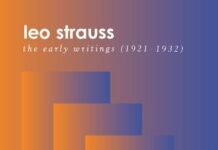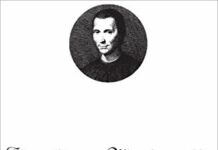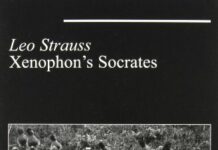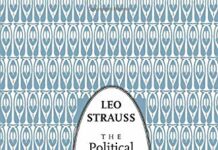
Ebook Info
- Published:
- Number of pages:
- Format: PDF
- File Size: 2.20 MB
- Authors: Leo Strauss
Description
Although Leo Strauss published little on Nietzsche, his lectures and correspondence demonstrate a deep critical engagement with Nietzsche’s thought. One of the richest contributions is a seminar on Nietzsche’s Thus Spoke Zarathustra, taught in 1959 during Strauss’s tenure at the University of Chicago. In the lectures, Strauss draws important parallels between Nietzsche’s most important project and his own ongoing efforts to restore classical political philosophy. With Leo Strauss on Nietzsche’s “Thus Spoke Zarathustra,” eminent Strauss scholar Richard L. Velkley presents Strauss’s lectures on Zarathustra with superb annotations that bring context and clarity to the critical role played by Nietzsche in shaping Strauss’s thought. In addition to the broad relationship between Nietzsche and political philosophy, Strauss adeptly guides readers through Heidegger’s confrontations with Nietzsche, laying out Heidegger’s critique of Nietzsche’s “will to power” while also showing how Heidegger can be read as a foil for his own reading of Nietzsche. The lectures also shed light on the relationship between Heidegger and Strauss, as both philosophers saw Nietzsche as a central figure for understanding the crisis of philosophy and Western civilization. Strauss’s reading of Nietzsche is one of the important—yet little appreciated—philosophical inquiries of the past century, both an original interpretation of Nietzsche’s thought and a deep engagement with the core problems that modernity posed for political philosophy. It will be welcomed by anyone interested in the work of either philosopher.
User’s Reviews
Reviews from Amazon users which were colected at the time this book was published on the website:
⭐To begin with, it is worth noting that this book is not an interpretation of Nietzsche’s Zarathustra prepared for publication by Strauss, but rather an edited-for-smoothness transcription of recordings of a class Strauss gave on Zarathustra at the University of Chicago in 1959. In this connection, Velkley has done an excellent job of editing and annotating, allowing Strauss’s interpretation to present itself without interference that would distract from the most direct view possible. Given the recognition of what this book offers, it is an outstanding opportunity for the reader to study Nietzsche along with Strauss. Obviously this is not the same as experiencing Strauss’s instruction first hand, for we are not able to question Strauss directly, but it nonetheless permits the reader to see how Strauss taught political philosophy.As an interpretation of Zarathustra, Strauss’s presentation is instructionally comprehensive without attempting to be hermeneutically complete or philosophically comprehensive. I have two other commentaries on Zarathustra in mind when saying this. I would describe Laurence Lampert’s commentary as an attempt at interpretational completeness because he not only painstakingly connects the various parts of Zarathustra to the whole of the book, but he also offers his view on how Zarathustra is related to Nietzsche’s teaching as a whole. Likewise, although Strauss’s direct student Stanley Rosen’s commentary on Zarathustra does not attempt to detail the parts of Zarathustra in the way Lampert did, Rosen does offer an interpretation of Zarathustra that comprehensively and critically evaluates the metaphysical and political philosophy of Nietzsche from the perspective of the philosophy which Nietzsche claimed to be superseding or in some way destroying, namely Platonism and the modern philosophy of the Enlightenment. Because of Strauss’s style of instruction and the limits of the course he was teaching, Strauss herein is content to read and explain Zarathustra in a way intended to encourage the student to engage with Nietzsche as one finds in the commentaries of Lampert and Rosen.By saying this I do not want to give the impression that Strauss’s commentary is less valuable than Lampert’s or Rosen’s. Rather, I say this to explain that Strauss’s purpose here is not the same as Lampert’s or Rosen’s, and so the potential reader of this book can go into it knowing in a broad way what to expect. If the reader of Nietzsche is relatively unsure of how to proceed in trying to philosophically understand Nietzsche’s inspired writing in Zarathustra, I would recommend beginning with Strauss’s book. If at that point your appetite is whetted for reading Zarathustra exhaustively, then go on to Lampert’s book. If at that point you find yourself thinking what does Zarathustra literally mean from the perspective of a philosopher who respects Nietzsche as a thinker but suspects there is more to the tradition Nietzsche is trying to level than his pyrotechnic pronouncements indicate, then study Rosen’s commentary.Readers of Strauss know that he often described Nietzsche as the beginning of the third wave of modernity, which Strauss interpreted as an intensification of the second wave that began with Rousseau’s critique of the Enlightenment. This is clearly explained here in a way not to be found in Strauss’s other published work. Therefore those interested in Strauss himself will certainly want to study this book.
⭐The only issue I have is the missing passages, otherwise It is worthwhile as a companion to Strauss’s reading of Beyond Good and Evil.
⭐The book is well written on a truly interesting man who single handedly made Political Philosophy relevant again.
⭐great. important book
⭐Der große Philosoph, Philologe und Hermeneutiker Leo Strauss seziert hier Nietzsches Meisterwerk “Also sprach Zarathustra”. Wie immer überrascht Strauss mit close reading, genialen Assozationsketten und einer in Deutschland erworbenen umfassenden humanistischen Bildung. Das Buch hat mich auf ganz neue Aspekte im Werk Nietzsches aufmerksam gemacht
⭐
Keywords
Free Download Leo Strauss on Nietzsche’s Thus Spoke Zarathustra (The Leo Strauss Transcript Series) in PDF format
Leo Strauss on Nietzsche’s Thus Spoke Zarathustra (The Leo Strauss Transcript Series) PDF Free Download
Download Leo Strauss on Nietzsche’s Thus Spoke Zarathustra (The Leo Strauss Transcript Series) PDF Free
Leo Strauss on Nietzsche’s Thus Spoke Zarathustra (The Leo Strauss Transcript Series) PDF Free Download
Download Leo Strauss on Nietzsche’s Thus Spoke Zarathustra (The Leo Strauss Transcript Series) PDF
Free Download Ebook Leo Strauss on Nietzsche’s Thus Spoke Zarathustra (The Leo Strauss Transcript Series)





